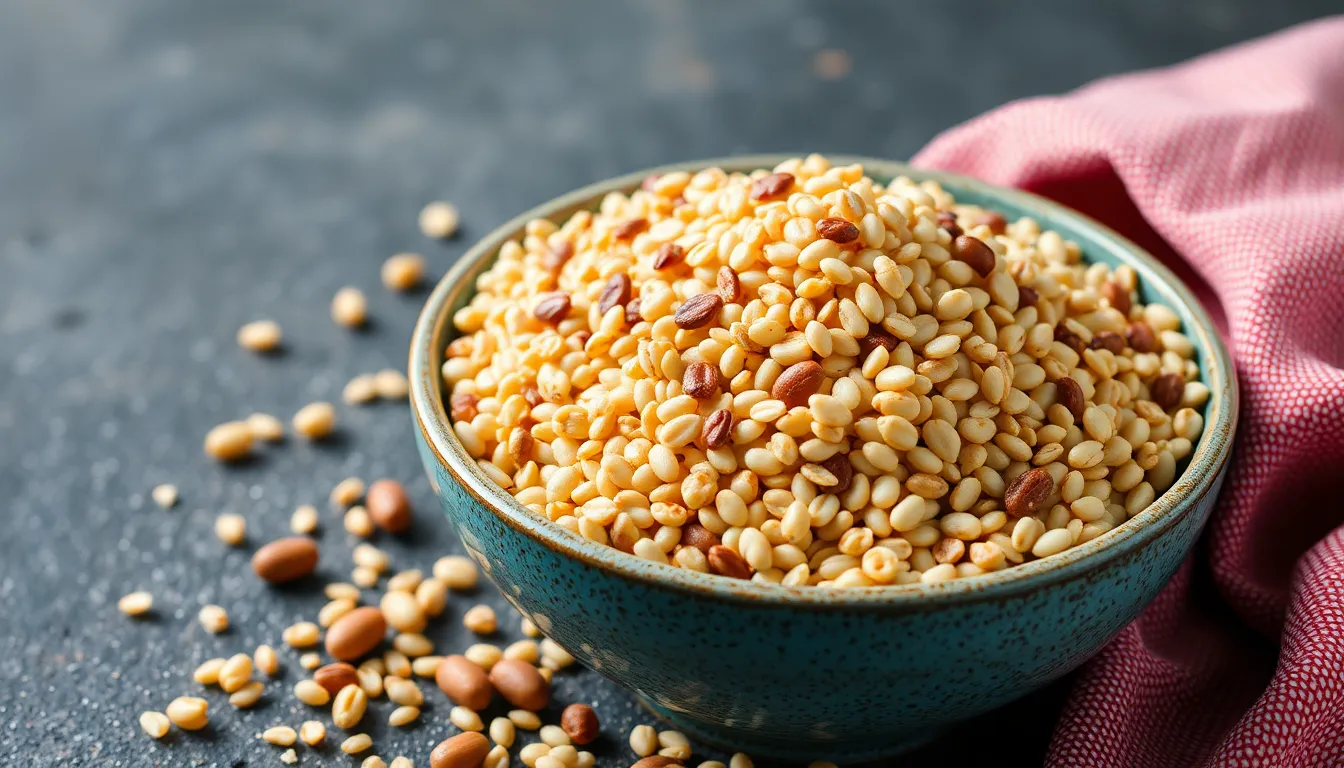The Best Grains for Heart Health: What to Know
Heart health is a critical aspect of overall well-being, influencing everything from energy levels to longevity. In a world where cardiovascular diseases remain one of the leading causes of death, understanding how to support heart health through diet is paramount. Among the myriad of dietary choices, grains play a significant role, serving as a staple in many cultures and offering numerous health benefits. This article will explore the best grains for heart health, their benefits, and how to incorporate them into your meals.
Section 1: Understanding Heart Health
1.1 Importance of Heart Health
Cardiovascular diseases (CVD) encompass a range of conditions affecting the heart and blood vessels, including coronary artery disease, heart attacks, and strokes. The World Health Organization estimates that 17.9 million people die each year from CVD, accounting for 32% of all global deaths. These statistics emphasize the need for preventive measures, including a heart-healthy diet.
1.2 Role of Diet in Heart Health
A heart-healthy diet is essential for preventing heart disease and maintaining cardiovascular health. Dietary recommendations often include:
- Reducing saturated and trans fats
- Increasing the intake of fruits and vegetables
- Eating a variety of whole grains
- Limiting added sugars and sodium
Grains, particularly whole grains, have been shown to impact heart health positively. They provide essential nutrients, fiber, and antioxidants that contribute to cardiovascular wellness.
Section 2: Nutritional Benefits of Whole Grains
2.1 What Are Whole Grains?
Whole grains are grains that contain all essential parts and naturally-occurring nutrients of the entire grain seed. This includes the bran, germ, and endosperm. Common examples of whole grains include:
- Quinoa
- Brown rice
- Oats
- Barley
- Farro
2.2 Health Benefits of Whole Grains
Whole grains offer numerous health benefits, especially for heart health:
- Fiber Content: Whole grains are rich in dietary fiber, which helps lower cholesterol levels and regulates blood sugar.
- Vitamins and Minerals: They are excellent sources of B vitamins, iron, magnesium, and selenium, all crucial for heart function.
- Antioxidants: Whole grains contain antioxidants that combat inflammation and reduce the risk of heart disease.
Section 3: The Best Grains for Heart Health
3.1 Quinoa
Nutritional Profile: Quinoa is a complete protein, containing all nine essential amino acids. It is also rich in fiber, magnesium, and antioxidants. A 100g serving has:
- Calories: 120
- Fiber: 2.8g
- Protein: 4.1g
Health Benefits Specific to Heart Health: Quinoa helps lower blood cholesterol and is a great source of magnesium, which aids in regulating blood pressure.
Suggestions for Use in Meals: Use quinoa as a base for salads, in soups, or as a substitute for rice and pasta.
3.2 Oats
Nutritional Profile: Oats are known for their heart-healthy benefits. A 100g serving has:
- Calories: 389
- Fiber: 10.6g
- Protein: 16.9g
Health Benefits Specific to Heart Health: Oats contain beta-glucans, which help lower cholesterol levels, thus reducing the risk of heart disease.
Suggestions for Use in Meals: Incorporate oats into breakfast as oatmeal, add them to smoothies, or use them in baking for healthier cookies and muffins.
3.3 Barley
Nutritional Profile: Barley is another excellent grain for heart health. A 100g serving has:
- Calories: 354
- Fiber: 17.3g
- Protein: 12.5g
Health Benefits Specific to Heart Health: Barley has high soluble fiber content, which helps reduce blood cholesterol levels and promotes heart health.
Suggestions for Use in Meals: Use barley in soups, stews, or as a filling in salads. It can also be used to make barley risotto for a healthy twist.
3.4 Brown Rice
Nutritional Profile: Brown rice is a whole grain with numerous health benefits. A 100g serving has:
- Calories: 123
- Fiber: 1.8g
- Protein: 2.7g
Health Benefits Specific to Heart Health: Brown rice is rich in fiber and essential nutrients, helping to regulate cholesterol levels and support heart health.
Suggestions for Use in Meals: Brown rice can be served as a side dish, added to stir-fries, or used as a base for grain bowls.
3.5 Farro
Nutritional Profile: Farro is an ancient grain packed with nutrients. A 100g serving has:
- Calories: 340
- Fiber: 7.8g
- Protein: 14g
Health Benefits Specific to Heart Health: Farro is high in fiber and nutrients, contributing to heart health by regulating cholesterol and blood sugar levels.
Suggestions for Use in Meals: Use farro in salads, soups, or as a hearty side dish. It can also be mixed with vegetables for a nutritious grain bowl.
HTML Table: Nutritional Comparison of Heart-Healthy Grains
| Grain | Calories (per 100g) | Fiber (g) | Protein (g) | Heart Health Benefits |
|---|---|---|---|---|
| Quinoa | 120 | 2.8 | 4.1 | Rich in magnesium and antioxidants |
| Oats | 389 | 10.6 | 16.9 | Lower cholesterol and improve heart health |
| Barley | 354 | 17.3 | 12.5 | Supports healthy cholesterol levels |
| Brown Rice | 123 | 1.8 | 2.7 | Helps regulate cholesterol and blood sugar |
| Farro | 340 | 7.8 | 14.0 | Regulates cholesterol and blood sugar levels |
Conclusion
Incorporating heart-healthy grains into your diet is an effective way to enhance cardiovascular health. Quinoa, oats, barley, brown rice, and farro all provide unique benefits that contribute to a healthy heart. By understanding the nutritional profiles and health benefits of these grains, you can make informed choices that promote heart health and overall well-being.
Start experimenting with these grains in your meals today, and take a step towards a healthier heart. Remember, a heart-healthy diet is not just about avoiding unhealthy foods; it’s also about embracing nutrient-rich choices that can lead to a longer, healthier life.




